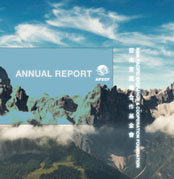October 19th, 2015
The fourth World Buddhist Forum is to open on Oct. 24 Mr. Xiao Wunan: Learn from Fo Kwang Mountain to create next golden decade for Chinese Buddhism
Reported from Beijing, the fourth World Buddhist Forum is about to open soon, our newspaper was given an exclusive interview with Mr. Xiao Wunan, Executive Vice Chairman of the Asia Pacific Exchange and Cooperation Foundation(APECF), who is recognized worldwide for his prominent contribution to the development of Buddhism in China and its expansion all over the world. Since the first World Buddhist Forum held in 2006, Chinese Buddhism has witnessed unprecedented development, but it also has to face many problems such as the recent disturbance at the Shaolin Temple, as well as the "invisible war" with other religions. Mr. Xiao Wunan pointed out Buddhism has experienced a "golden decade" since "Sanya Consensus" reached in 2005. 2015 proves to be a crucial year, how to create the next "golden decade" remains a question. Buddhism will assume important responsibility during this period. The example set by the Taiwan Fo Kwang Mountain is worth learning, the lesson is Buddhism can only thrive after combining faith with spirit of the times. Buddhism will not hesitate to make every effort to realize Chinese Cultural Renaissance in the diversified world.
Wrist rosary, prayer wheel and Buddha statues are common scenes in the Chinese capital. Buddhist temples become tourist attractions crowded by street vendors, restaurants and shops, Buddhist believers hold concerts, reading sessions and publish books. Through new media such as Weibo, Buddhist monasteries brace the secular world to spread its preaching.
Many local officials are pretty clear the Buddhism is not only about faith, but it could also contribute to economic development. In the meantime, there are also negative news going viral on the internet: various controversial phenomenon associated with Buddhism, the rise of other new religions, such as the Baha'i Faith the real estate tycoon Pan Shiyi practiced in his business management, etc. Mr. Xiao Wunan holds mixed views over the future development of Chinese Buddhism under the threat of potential crisis.
Buddhist to revitalize Chinese culture
Baha'i, Christian, Mormon and other religions have seen rapid development on the Chinese mainland, most of the followers are born in the 1980s and 1990s, highly educated and employed as corporate executives. Relationship between Buddhism and the traditional Confucianism, Taoism has also undergone subtle changes.
Although Taoist is China's indigenous religion, but it cannot be compared with Buddhism in terms of size and influence, some of the Taoist monks often complains they have less contribution from followers when compared with Buddhism. Although mainland religious administration tries to provide a level playing field, the advantage enjoyed by Buddhism is self-evident. From the speech given by Xi Jinping at the 2014 UNESCO meeting and his articles published on "Beijing Daily", we can see the important status enjoyed by Buddhism.
Mr. Xiao Wunan pointed out the revival of religion especially Buddhism is part of renaissance of the Chinese civilization. China should take advantage of the golden period since the World Buddhist Forum and seriously consider whether to adopt Buddhism as the state religion. China can promote its culture worldwide through Buddhism which also complies with "universal values".
Compassion, the road to world peace
Mr.Xiao Wunan cited the example of Fo Kwang Mountain Master Hsing Yun who advocates Humanistic Buddhism to "promote Buddhism culture, education and training of personnel, social welfare and meditation to purify the mind" . Fo Kwang Mountain is also present at the Taipei World Buddhist Forum and the closing ceremony.
World Buddhist Forum has been successfully held for three times with respective theme of "A harmonious world begins in the mind", "Harmonious world, great synergy", "Harmonious world, solid cooperation". Mr. Xiao Wunan was invited to the forum every time to experience Buddhism's profound impact on world peace.
South Korean Buddhist Lin Yingtan said: "Buddhism contributes a lot to South Korea's social harmony." Mr. Xiao also said: "China alone cannot address all social contradictions and illnesses accumulated in the past century. With the compassion, tolerance and patience advocated by Buddhism, China may find a way out. "
This year's forum adopts the theme of "Exchanges and mutual learning” and will be held on Oct. 24 and 25 in Wuxi, Jiangsu Province, to explore the role of Buddhism in resolving problems faced by the humanity.


 Back
Back